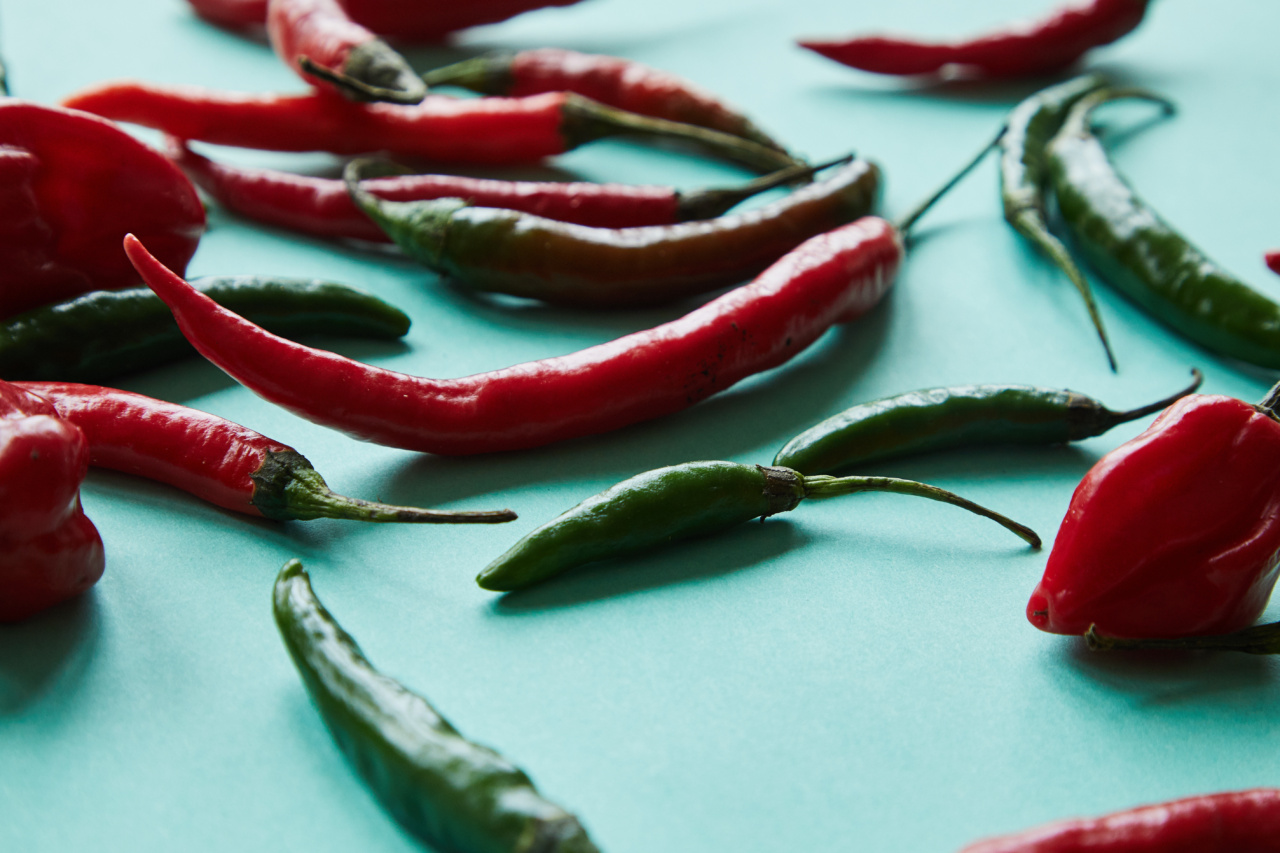Hot peppers, also known as chili peppers, are not just a way to add a kick to your favorite dishes. They offer a myriad of health benefits, including their potential to ward off gut cancer.
Gut cancer, also called gastric cancer, is a type of cancer that develops in the lining of the stomach. It is a highly prevalent and deadly form of cancer, with millions of new cases and deaths reported every year worldwide. However, incorporating hot peppers into your diet could be a simple yet effective way to lower your risk of developing gut cancer.
What Makes Hot Peppers Beneficial?
The secret behind the health benefits of hot peppers lies in their active compound called capsaicin. Capsaicin is responsible for the spicy taste of peppers and is known to possess a variety of medicinal properties.
It boasts anti-inflammatory, pain-relieving, and antioxidant effects, making it a potent ingredient for fighting against various diseases, including cancer.
How Capsaicin Fights Gut Cancer
Several studies have suggested that capsaicin can inhibit the growth and spread of cancer cells in the gut. It does so through multiple mechanisms:.
1. Inducing Apoptosis:
Apoptosis is a natural process of programmed cell death that occurs in our bodies to eliminate damaged or abnormal cells. However, cancer cells often develop the ability to resist apoptosis, allowing them to evade this self-destruction mechanism.
Capsaicin has been found to induce apoptosis in gut cancer cells, effectively promoting their death and preventing further growth.
2. Inhibiting Tumor Angiogenesis:
Tumor angiogenesis refers to the formation of new blood vessels to supply nutrients and oxygen to cancerous tumors. Capsaicin has been shown to suppress the process of tumor angiogenesis, thereby cutting off the blood supply to the cancer cells.
This starves the tumors, inhibiting their growth and preventing metastasis.
3. Activating Protective Enzymes:
Hot peppers have been found to activate certain enzymes in the body that play a crucial role in protecting against cancer.
For example, capsaicin can stimulate the production of phase II detoxifying enzymes, which help in eliminating carcinogenic substances from the body. By enhancing the activity of these enzymes, capsaicin helps the body effectively neutralize cancer-causing agents.
4. Suppressing Inflammatory Response:
Chronic inflammation is known to contribute to the development and progression of various types of cancer, including gut cancer.
Capsaicin possesses potent anti-inflammatory properties, reducing the production of inflammatory molecules and suppressing the inflammatory response in the gut. By doing so, it creates an unfavorable environment for cancer cells to thrive in.
5. Enhancing Immune Function:
The immune system plays a crucial role in identifying and eliminating cancer cells from the body.
Capsaicin has been found to enhance the function of natural killer (NK) cells, which are specialized immune cells responsible for targeting and destroying cancer cells. By boosting NK cell activity, capsaicin strengthens the immune response against gut cancer.
How to Incorporate Hot Peppers into Your Diet
If you’re convinced about the potential benefits of hot peppers for warding off gut cancer, here are some tips on how to incorporate them into your diet:.
1. Add Them to Your Meals:
One of the easiest ways to consume hot peppers is by adding them to your favorite meals.
Whether it’s a spicy curry, stir-fry, or a homemade salsa, hot peppers can add a fiery flavor to your dishes while also providing their cancer-fighting benefits.
2. Experiment with Different Varieties:
There are numerous varieties of hot peppers available, each with its own unique flavor and level of spiciness. Experiment with different types like jalapenos, habaneros, serranos, or Thai chilis to find your preferred taste.
Remember to start with milder peppers if you’re not accustomed to spicy foods.
3. Try Hot Pepper Sauces:
If you want to spice up your meals without the hassle of cutting and cooking peppers, hot pepper sauces can be a convenient option. Look for sauces made with real peppers and minimal additives for the best health benefits.
4. Snack on Dried Peppers:
Dried hot peppers make a great on-the-go snack. They are portable, flavorful, and can be easily packed into your bag or lunchbox. Just be cautious with the level of spiciness, as dried peppers can be hotter than fresh ones.
5. Consider Supplements:
If you find it challenging to consume hot peppers regularly, you can opt for capsaicin supplements.
These supplements contain concentrated doses of capsaicin, allowing you to enjoy the benefits without the need for incorporating peppers into your meals.
Conclusion
Eating more hot peppers can be a delicious and beneficial way to ward off gut cancer.
The active compound capsaicin found in hot peppers possesses numerous anti-cancer properties, including inducing apoptosis, inhibiting tumor angiogenesis, activating protective enzymes, suppressing inflammation, and enhancing immune function. By incorporating hot peppers into your diet, you can potentially reduce your risk of developing gut cancer and improve your overall health.































